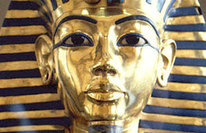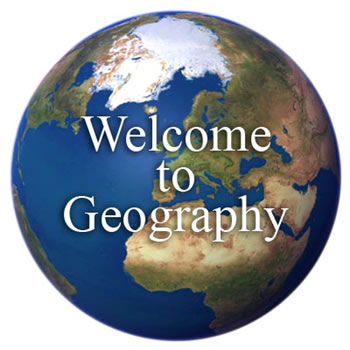*Note: Original videos found on YouTube. Educational You Tube videos have been uploaded on my site specifically so that it can be accessed through the district firewall. (YouTube is blocked.)
Unit #1: Geography
Overview:
Geography is the study of physical and human characteristics and how they impact the relationship between Earth and the people on it. It is essential that students develop the skills that will enable them to observe patterns, associations, and spatial order. Many of the capabilities that students need to develop geographic skills are termed critical thinking skills. These involve inferring, analyzing, judging, hypothesizing, generalizing, predicting and decision-making. These have applications to all levels of geographic inquiry in which students can build competencies in applying geographic skills to geographic inquiry. Culture and experience shape belief systems, which in turn influence people’s perceptions of places and regions throughout their lives. It is essential that students appreciate the diverse values of others in a multicultural world and to engage in accurate and sensitive analysis of people, places, and environments.
Enduring Understandings:
● Using geographic tools to understand human settlement patterns and development.
● Geography influences how people live and work on earth in order to get what they need.
● People are affected by environmental, social, and cultural concerns.
Essential Questions:
● What is geography?
● How do maps and other geographic tools allow geographers to gain information?
● How is geography used to understand where things are and why they are there?
● How does geography impact the actions of people and how do people impact the earth?
● How do the earth’s processes of rotation and revolution have an affect on the interaction of people and earth?
● How does culture influence the way people live on earth?
● How can maps be used to solve societal problems?How do historians examine the geography of a place? How do we effectively read and interpret maps?
Unit #1 introduces students to the concept of geography. It also covers continents, oceans, landforms, climate, and vegetation. Students are also introduced to globes and maps. Features of maps are also covered. Students will develop and practice map reading and interpreting skills.
Geography is defined as "the study of Earth and it's people." Geography includes everything from land and water to natural resources, climate, and vegetation. As you study geography and history, it is important to be able to accurately read a variety of maps and documents. Using maps, charts, and tables to find out information is the focus on this unit.
What is Geography?
|
What a Wonderful World!
|
Why Should I Care about Geography?
|
The Earth's Continents and Oceans
|
|
|
|
Learning About Landforms
|
Maps and Globes
|
Latitude and Longitude
|
Game: Latitude and Longitude Treasure Hunt
Go to the "Latitude and Longitude Treasure Hunt" website to practice your understanding of latitude and longitude.
Go to the "Latitude and Longitude Treasure Hunt" website to practice your understanding of latitude and longitude.
Weather vs. Climate |
Earth: Climate and Weather |
|
|
|
Stories from the Stone Age
https://www.youtube.com/watch?v=-7bqi70B3tE
Mesopotamia From Nomads to Farmers
Ancient Egypt

Egypt is one of the world's oldest civilizations. Egypt is often called "The Gift of the Nile" because without the mighty Nile, Egypt would never have developed. The purpose of this unit is to familiarize you with the ancient Egyptian civilization, famous pharaohs, Egyptian myths and polytheistic beliefs, and the influence Egypt had on trade in the Middle East.
Egypt's Geography and Farming:
Lesson #1: In this lesson, you will learn about the Nile River and why it was so important to the ancient Egyptians. You will also learn about other geographic features of Egypt.
Lesson #1: In this lesson, you will learn about the Nile River and why it was so important to the ancient Egyptians. You will also learn about other geographic features of Egypt.
Ancient Egypt - Gift of the Nile
https://app.discoveryeducation.com/search?Ntt=gift+of+the+nile
Farming Along the Nile
https://app.discoveryeducation.com/search?Ntt=gift+of+the+nile
Egypt's Pharaohs and Pyramids
Lesson #2: In this lesson, you will learn about the Egyptian leaders called pharaohs. You will also learn about the pyramids and how they were connected to the pharaohs.
https://app.discoveryeducation.com/search?Ntt=gift+of+the+nile
Egypt's Religious Beliefs
Lesson #3: In this lesson, you will learn about the religious beliefs of the Egyptians and what they thought would happen after death.
Hatshepsut
Lesson #4: In this lesson, you will learn about Egypt's first female pharaoh, named Hatshepsut; she accomplished many good things for Egypt.
Ramses
Lesson #5: In this lesson, you will learn about Egypt's powerful military pharaoh, named Ramses II ; he accomplished many great things for Egypt.
"Ramses: Great Builder, Fighter, Father, and Pharaoh"
"Ramses: A Great Military Leader"

